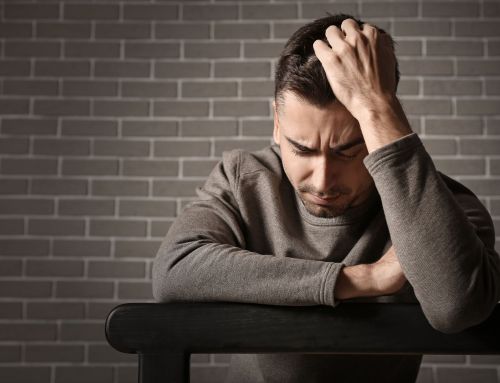
Alcohol withdrawal, also known as delirium tremens (DTs), occurs when someone abruptly stops drinking after heavy alcohol use. The individual goes through withdrawal and often experiences uncomfortable symptoms such as shaking, confusion, anxiety, hallucinations, seizures, and uncontrollable sleep disruption. DTs can be dangerous if not managed properly by medical professionals and that’s why it’s important above all to seek out professional medical detox if you have a heavy drinking habit and are experiencing withdrawals that are severe as compared to minor dependence. Alcohol withdrawals are one of the few substance withdrawals that can kill you, so seeking out medical detox is a crucial and lifesaving measure for any individual with an alcohol use disorder. By looking at each of these common therapies for alcohol withdrawal management you can gain valuable insight into how these therapies work as well as their unique benefits and drawbacks.
The Most Important Thing to Do is Stop Drinking
The most important thing to do when starting therapy for alcohol withdrawal management is to stop drinking.
All of the other therapies in this list work better when someone has abstained from alcohol. There are many approaches a medical professional can take to help with these symptoms.
The primary goal is to decrease the severity and duration of these withdrawal symptoms by controlling them, reducing them, or stopping them altogether. Some people may benefit more from one type of treatment than another, so it’s important to talk about what works best for you as an individual.
Find the Best Ways to Treat It
There are many different treatment methods and medications to help you combat alcohol withdrawal. Adjunct therapies that may be considered, include sleep aids and muscle relaxants. Your best chance of success is when you complete the detoxification process and go on to undertake a rehabilitation program. This can help you get back on your feet. There are many options in rehab programs, but it really depends on what type of abuse you’ve had as well as your insurance coverage.
All treatments should be determined by a healthcare professional or doctor following an assessment of the patient’s condition, needs, goals, and values.
(With Doctor’s Permission) If You Have a Headache, Try Taking Ibuprofen
If you have a headache and it’s caused by withdrawal, consider taking ibuprofen to see if that helps. In many cases, people who have withdrawals experience headaches and using ibuprofen is an effective treatment option.
However, this is just one possible therapy so don’t forget to speak with your doctor or nurse before trying anything new. Another common drug used to treat withdrawal symptoms is chlordiazepoxide (Librium). It can help manage anxiety and insomnia.
If you’re experiencing seizures, don’t hesitate to call 911 immediately: If the person experiencing alcohol withdrawal has been drinking heavily for at least three days in a row, there’s a chance they could be experiencing seizures due to dehydration from the alcohol. The best thing to do in this situation is not to hesitate when they start seizing and to call 911 right away.
Once You Can Stop Vomiting, Start Eating
Doctors advise people going through alcohol withdrawal to start with a well-balanced meal. Foods that contain sugar, salt, and carbs can restore electrolytes.
These foods also give the body energy to combat the metabolic imbalance caused by alcohol consumption. Doctors recommend drinking plenty of fluids, preferably electrolyte-rich water, along with these types of food.
As long as you don’t experience vomiting again soon after you eat or drink something, it is safe to continue eating and drinking normally.
If You Have Stomach Cramps, Take Some Magnesium Citrate
Magnesium citrate is a common home remedy for stomach cramps and can relieve the uncomfortable symptoms of alcohol withdrawal by suppressing diarrhea and vomiting.
If you are experiencing any uncomfortable symptoms from withdrawal, don’t hesitate to contact your doctor or a hospital as soon as possible. In the meantime, take some ibuprofen to reduce headache pain and fever.
Drink plenty of fluids but avoid caffeinated beverages like coffee, tea, soda pop, or cola that might worsen anxiety. Try chamomile tea instead: it has natural sedative properties which will help you sleep through the night and make withdrawal less intense.
Consider taking vitamin B-complex which will help boost energy levels and prevent mood swings that may make detoxing even more difficult than it already is.
Avoid Caffeine and Energy Drinks
Caffeine can act as a withdrawal suppressant which means the symptoms of withdrawal will be felt more intensely and your body will have more difficulty recovering. Consider caffeine to be a last resort. The theory is that if you give up caffeine, the withdrawal symptoms may start to decrease and this can lead to an easier transition into sobriety.
To avoid withdrawal from caffeine, try not drinking caffeine at all or drink it sparingly. If you’re going without coffee or energy drinks it may also help to stay hydrated by drinking lots of water (at least eight glasses per day). Drinking iced tea or eating licorice may also help with milder symptoms related to withdrawal from caffeine and sugar.
When it comes to managing alcohol withdrawal most people are aware of how important staying hydrated is but there are other methods too.
Sedatives like benzodiazepines and antidepressants like clonidine may work well in some cases but they’re typically used in conjunction with other treatments because they carry their own risks and side effects. If a patient has had a past benzo addiction, that can make these therapies non-viable.
For example, using clonidine could make someone feel sleepy so they would need to take precautions such as removing any dangerous objects before bedtime. And sometimes anxiety might come back when someone stops taking clonidine so the individual would need regular therapy sessions in order to deal with those feelings appropriately.
Try Having a Warm Bath Before Bed
A warm bath before bed has a number of therapeutic benefits, one of which is helping to manage withdrawal symptoms.
Firstly, the warmth soothes and relieves any muscle tension that may have been built up over the day. Secondly, because it helps with relaxation, it can relieve some of the insomnia symptoms.
Thirdly, some people find that having a warm bath before bed helps them feel more comfortable in their own skin or reduces any depression or anxiety they may be feeling at the time.
Talk To Your Doctor About Other Treatments: North Jersey Recovery Center Alcohol Withdrawal Programs
Navigating withdrawals can be a difficult task. This is precisely why professional addiction resources such as North Jersey Recovery Center can help guide you along the right path. After detox, we can assist you in getting into a proper structured addiction treatment program. The best way to deal with alcohol withdrawal is by seeking medical help. If you or someone you know struggles with alcohol addiction, getting a professional treatment can make a huge difference in one’s life.
No matter the form of treatment, it’s important to work closely with a doctor who can prescribe you an appropriate treatment that suits your needs.
At North jersey Recovery Center, we provide more insight about alcohol withdrawal management treatments so that you have as much information as possible about what type of therapy would be best for you.
Contact us today to learn more about our alcohol withdrawal management treatment programs and procedures!






